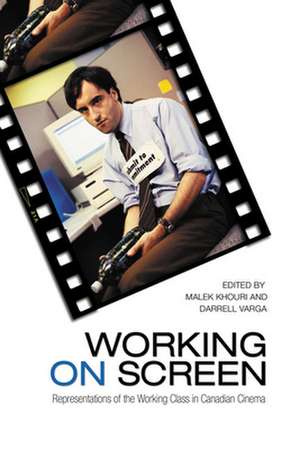Working on Screen
en Limba Engleză Paperback – 6 oct 2006
As themes in film studies literature, work and the working class have long occupied a peripheral place in the evaluation of Canadian cinema, often set aside in the critical literature for the sake of a unifying narrative that assumes a division between Qubcois and English Canada's film production, a social-realist documentary aesthetic, and what might be called a 'younger brother' relationship with the United States.
In Working on Screen, contributors examine representations of socio-economic class across the spectrum of Canadian film, video, and television, covering a wide range of class-related topics and dealing with them as they intersect with history, political activism, globalization, feminism, queer rights, masculinity, regional marginalization, cinematic realism, and Canadian nationalism.
Of concern in this collection are the daily lives and struggles of working people and the ways in which the representation of the experience of class in film fosters or marginalizes a progressive engagement with history, politics, and societies around the world. Working on Screen thus expands the scholarly debates on the concept of national cinema and builds on the rich, formative efforts of Canadian cultural criticism that held dear the need for cultural autonomy.
Contributors:
Bart Beaty
Scott Forsyth
Margot Francis
David Frank
Malek Khouri
Joseph Kispal-Kovacs
Andre Loiselle
Brenda Longfellow
Susan Lord
John McCullough
Rebecca Sullivan
Peter Urquhart
Darrell Varga
Thomas Waugh
Preț: 257.58 lei
Preț vechi: 317.70 lei
-19% Nou
49.29€ • 51.63$ • 40.85£
Carte indisponibilă temporar
Specificații
ISBN-10: 0802093884
Pagini: 293
Dimensiuni: 153 x 231 x 20 mm
Greutate: 0.47 kg
Editura: University of Toronto Press (Scholarly Pub)
